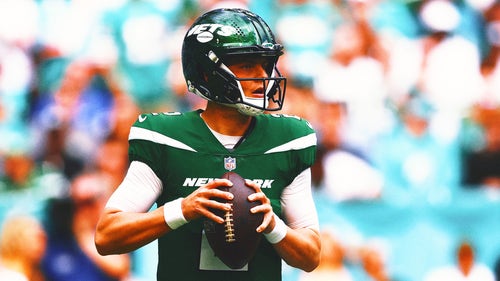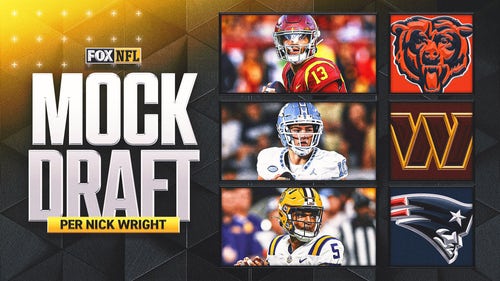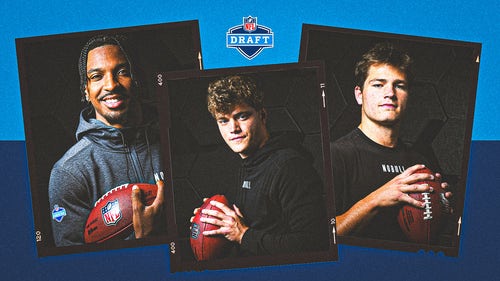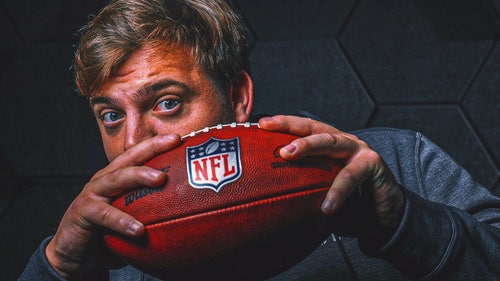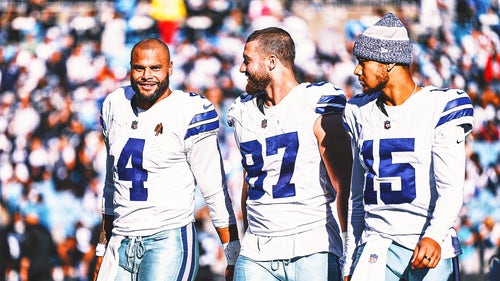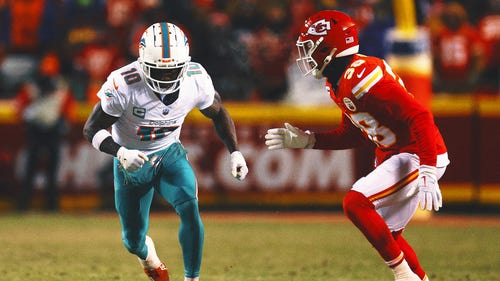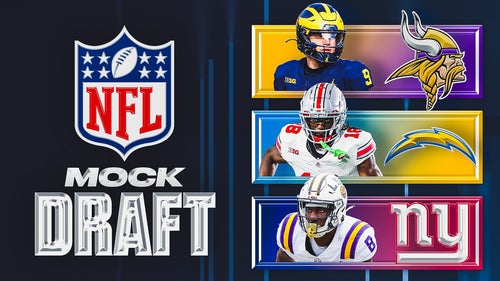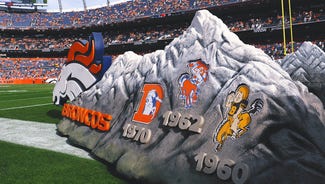
NFL HALFWAY: NFL reluctant to suspend for illegal hits

Last Sunday, Chiefs tight end Travis Kelce was ejected for throwing a towel at a referee.
A week before that, Dolphins receiver Jarvis Landry took a running start at a defender who couldn't see him, slammed his shoulder into the player's neck and sent him to the hospital. Landry played on after a 15-yard penalty and later received a $24,000 fine.
These two snapshots - polar opposites in both the players' actions and the NFL's response - underscore one of the league's most difficult issues. Faced with an ever-growing concussion crisis, it talks tough about curbing illegal hits, especially those above the shoulders. Yet it uses its most-stringent penalty for those sorts of infractions - the suspension - very infrequently compared to the number of relatively inconsequential fines it hands out.
''What do you do when you want to punish somebody? You take something away,'' Jaguars tight end Marcedes Lewis said. ''The money, yeah, cool, but depending on who you are, you're good as far as the money goes anyway because you know it's going to keep coming. When you take somebody out of the game, I think that's harsher.''
It's not to say the league is shy about ejecting and suspending players. Since the start of 2016 through Week 7, 47 have been suspended a total of 219 games and docked more than $18 million, according to the website sportrac.com.
But of those suspensions, the majority were for drug use or legal- and violence-related issues off the field. A four-game ban went to Tom Brady for ''Deflategate.'' And sportrac.com lists only one illegal-hit suspension - for three games - which went to Bengals linebacker Vontaze Burfict after his vicious hit to Steelers receiver Antonio Brown's head in last season's melee of a playoff game.
Meanwhile, sportrac.com lists 55 fines handed out in 2016 for violations including impermissible use of the helmet, roughing the passer, and blindside blocks the likes of which Landry delivered to unsuspecting Aaron Williams of the Bills. Williams crumpled to the ground and had to be transported to the hospital. Those infractions resulted in the single suspension (Burfict) and an average fine of $16,500 in a league with an average annual salary of $1.9 million. That's an average of 0.8 percent of a player's salary.
''Maybe we need to look at our rules a little better,'' Bills coach Rex Ryan said after the hit on Williams. ''Maybe, having a guy who targets and deliberately does something like that, the right thing to do is to eject the player from the game and maybe part of another game.''
That is the rule in college football, which also can use replay to pass final judgment on the legality of a hit.
After the hit on Williams, for which Landry expressed remorse, NFL vice president of officiating Dean Blandino told NFL Total Access it would've been a difficult call to eject Landry because ''it's still a football play, and it's tough to read intent there.'' He conceded ''we have few automatic ejections in the game today.''
The NFL did not make Blandino available to The Associated Press for this story. Instead it referenced a portion of the league rulebook that has been rewritten over the past few years to reflect its emphasis on curbing helmet-first, above-the-shoulders and other illegal hits that used to be celebrated but are now viewed in a different light.
''Ten years ago, when I came into the league ... the sky was the limit when it came to hits,'' said two-time Pro Bowl defensive back Michael Griffin of the Panthers. ''You lived for hits like that.''
Griffin served a one-game suspension as a repeat offender of hits to the head while with the Titans in 2013, the first season of the newly toughened hitting rules. When asked this week to reflect on the suspension, the first words out of Griffin's mouth were: ''That cost me too much money. That cost me $205,000.''
But he said the suspension helped change his outlook, in part because ''if you can't play within the (rules), they'll find somebody else to do it.''
The increased emphasis on technique and safety has undoubtedly played into the decline in fines for hits on defenseless players, which is one subset of the hits the AP reviewed as part of the sportrac.com numbers. The NFL says there were 40 such fines in 2012, and only 10 in 2015. Yet, the league's ability to police the violence this season came under scrutiny as early as Game 1, when MVP Cam Newton received four hits to the head in the season opener against the Broncos, none of which resulted in penalty yardage.
Darian Stewart delivered one of those hits, then one the next week to Andrew Luck. He's been fined a total of $27,000 for the hits - a tad more than 1 percent of his 2016 base salary.
No suspensions.
Newton has complained to the NFL, going all the way to Commissioner Roger Goodell to discuss. This week, Newton's coach, Ron Rivera, echoed Ryan, saying it might be time to crack down harder.
Steelers defensive end Cam Heyward, the team's union representative, says the players would appreciate more clarity.
''There's so many gray lines. Everybody is always waiting for someone, or what Goodell is going to say,'' Heyward said. ''If you have a set rule and a set amount and how it's going to be addressed, I think you'll see more clarity and you're not going to have to deal with those (questionable hits).''
The NFL has resorted to a more-direct approach before.
In 2010, after a rash of helmet-to-helmet hits, the league made a midseason adjustment and put the possibility of suspension front and center in an emergency effort to halt the violence. Predictably, defensive players complained - then, after a week that included $175,000 in fines, nobody was suspended.
Since then, a total of 10 players have been suspended for illegal hits and other over-the-top physical play on the field, according to sportrac.com. Four of those suspensions, including Griffin's, came in 2013. Another four have come over the past three seasons.
One observer believes player safety is only one of a multitude of issues the NFL has to consider when it decides which penalties to levy.
''As much as the league wants and needs to get rid of dirty plays and players, they don't want to take actions that compromise, or even appear to compromise, the actual contests themselves,'' said Doug Hartmann , a sociology professor at University of Minnesota, who teaches a course on sports in society. ''Fines and such, in other words, have much less impact on actual games and outcomes than suspensions or expulsions.''
---
AP Sports Writers Steve Reed in Charlotte, Will Graves in Pittsburgh and Mark Long in Jacksonville contributed to this report.
---
For more NFL coverage: http://www.pro32.ap.org and http://www.twitter.com/AP-NFL






































































































































